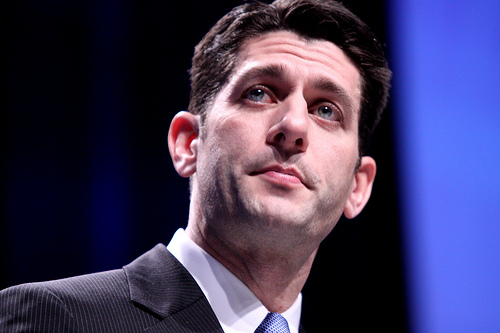The recent fights in Washington over the 2012 budget have been infuriating to watch for many reasons, not least of which is that they prove once again that the men and women who run the country are some of the worst dispute-resolvers in the history of the world. It is clear that there need to be significant tax increases, significant spending cuts, or both in order for the budget to approach balance.
Sometimes, though, it is important to remember that the fight is not just about money – the government does things for people, and cuts mean it can do fewer of those things.
Currently, the debate is focusing on Congressman Paul Ryan’s proposed cuts to Medicare and Medicaid. Health care has become an intensely politicized issue in this country, and the debate tends towards inflammatory. What many people forget (or choose to ignore), however, is that health care isn’t really a political issue. What the debate comes down to, at its core, is an ideological choice. Is health care a privilege or a right?

Medicare and Medicaid are two programs that help subsidize health care for a large number of Americans, including those over the age of sixty-five, poor families, disabled people, those suffering from kidney failure, and others.
As it stands, Medicaid is a means-tested program funded jointly by federal and state governments and Medicare is a program that mainly helps the elderly or permanently disabled, and is funded entirely by the federal government. Together, the programs account for a large proportion of government spending, representing 17.6% of Gross Domestic Product in 2009, according to the US Department of Health and Human Services.
Almost everyone agrees that some program restructuring is required to stop spending on health care from taking over the entire federal budget. But there is, of course, great variation in proposals. Ryan’s plan would cut spending to the programs by about a trillion dollars over the next decade.
People who will turn sixty-five in the next ten years will have their benefits unchanged – likely a concession to the most reliable voting block, seniors. Anyone currently younger than fifty-five, however, would have to deal with cuts to these programs. The plan would have Medicaid funded by block grants to states, leaving discretion about how to spend the money up to state governments which could lead to discrepancies in care across state lines. Medicare would turn into a federally subsidized private insurance program, essentially handing out vouchers that could be spent on private insurance.
Critics have said that giving seniors a voucher and leaving them to fend for themselves in the free market could render them unable to pay the high price of long-term health care, especially if they had a pre-existing condition or were to fall ill for a long period of time. In an interview on NPR’s All Things Considered, Ryan defended his plan. He asserted that the vouchers would increase in value as the recipient got sicker, that the program would be means-tested and that the poorest families would receive “complete out of pocket coverage.”
This proposal would put a much greater burden on many who rely on the government for health care, as they could be forced to pay more out of pocket. Though this plan would undoubtedly make a significant dent in government spending, that may not be the most important consideration when discussing health care.
The United States is trailing behind other developed countries in terms of the health of its citizens. According to World Bank data, the life expectancy at birth for a citizen of the United States is 78.7 years, while citizens of France and Sweden both have life expectancies over 81 years. The US has 6.8 infant deaths per 1,000 live births, compared to 3.2 in France and 3.2 in Sweden.
US citizens are having their health care benefits radically changed with more regard to cost than to quality of care. If health care is regarded as a privilege, then this approach makes perfect sense. Those who can afford to pay for the best care will get it, those who can not afford the best care will not receive it. In one of the richest countries in the world, with some of the best doctors, and one of the largest government budgets, good health should not be reserved only for the fortunate and the rich.
Medicare and Medicaid spending represent a huge drain on the federal budget, and restructuring may be in order to save them. But with the resources available to the United States government, there is no reason that restructuring should not result in better, cheaper health care for more people as opposed to less comprehensive, more expensive health care for fewer.
